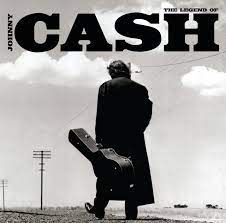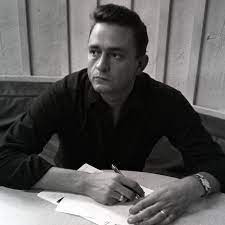Is Johnny Cash Separable From The Country Music Genre?

I have a friend who plays guitar, and he has a benign prejudice that stems from the old idea that you can only serve one master. He classifies people into two distinct groups: those who like The Beatles and those who like The Rolling Stones. One may say that the distinction between the groups is subtle and minuscule. However, there is an enormous difference between the two: They are as different as chalk and cheese, as Hallmark movies and action movies.
Even so, some people attempt to draw a similar distinction between country music and Johnny Cash. They like Johnny Cash’s music, but despise country music in general. Because of this, they claim that Cash is separable from the country genre.
They are mistaken: If you like Johnny Cash, you like country music. Now I understand despising country music if you reduce the genre to artists like The Chicks, Blake Shelton, and post-“Friends in Low Places” Garth Brooks. But those artists do not define country music; they are merely country-adjacent. Those who misunderstand the genre will say that they despise country music, but claim they love Johnny Cash. My question, then is, why do they need to separate Cash from country music? Suppose you believe that Johnny Cash is not a country artist. Then, logically, you needn’t amend your proclamation of hate towards country to specify that you still like Johnny Cash.

These people have a flawed understanding of country music but still (and rightly so) appreciate Johnny Cash. They try to justify their preference for Cash’s work by claiming that he does not fall into the country music category. They cite some of his works that aren’t necessarily country, such as his rendition of “Hurt.” Although Cash has the best version of this song, he did not originally write it; it was originally done by Nine Inch Nails. Besides, there is no denying that Cash’s version made it country.
People also claim that Cash’s inspiration and most of his work are influenced by traditional southern gospel music. While it is true that some of Cash’s work (and many of his covers) are gospel songs, it is foolish to jump to the conclusion that Cash is a gospel artist and not a country artist on that evidence alone.

So is Johnny Cash separable from country music? If he is, then what genre does he fall into? Rock? Certainly not. If he was a rock star, his albums would include more electric guitar work, along with the obligatory guitar solos. Folk? Well, maybe. But as a guitar player myself, I acknowledge that folk music on the guitar is more often done in fingerstyle rather than using a guitar pick, and most of Cash’s work is played with a pick. Gospel? No. Cash’s roots may be gospel, but some of his songs (e.g., “A Boy Named Sue”) center around ideas that are certainly not becoming of a gospel artist. So is he a genre of his own? No, he is a country artist. Even though he earned a place in the Country Music Hall of Fame, the Rock and Roll Hall of Fame, and the Gospel Music Hall of Fame, he is as inseparable from country music as the people of Buffalo are inseparable from their football team.
If you are still not convinced, Cash’s life is indistinguishable from a stereotypical country song. He was the son of poor cotton farmers in Arkansas, the middle child of a large family, and he served the country in the Air Force. Growing up in the Great Depression, he admired the working class. He acquired a drinking problem that ruined his marriages, and he went to jail before returning to his Christian faith. You could say that every country song is about Johnny Cash. The central themes of all country music are beer, whiskey, dirt roads, trucks, rattling trains, infidelity, prison, and broken hearts, all things that Johnny Cash lived and sang about. And there is no denying that these themes are at the heart of all the great country stars, such as Waylon Jennings, Willie Nelson, Kris Kristofferson, Hank Williams, Clint Black, Travis Tritt, George Strait, and Loretta Lynn.
So, if you like Johnny Cash, you like country music, and you probably need to revisit how you define the genre. Here’s a start: John Denver doesn’t count.